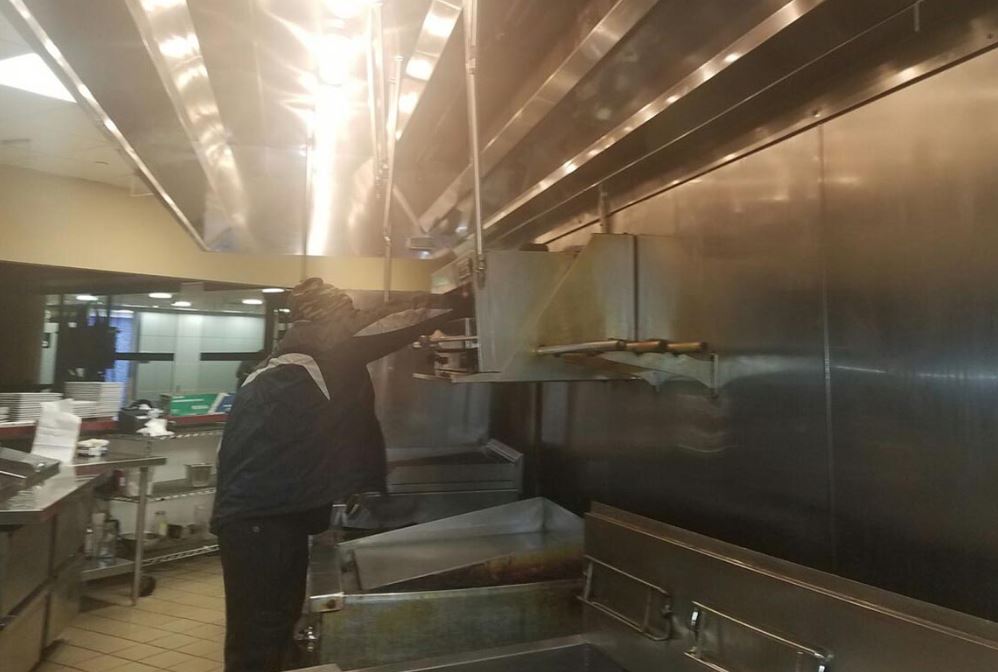In the dynamic and often challenging arena of restaurant management, few topics carry as much weight, yet remain as overlooked, as the importance of hood cleaning certification.
This particular aspect, while seemingly technical and auxiliary, plays a pivotal role in the overall safety, efficiency, and reputation of any food-service establishment. Comprehensive hood cleaning, and the certification thereof, not only ensures adherence to legal and regulatory guidelines but also significantly mitigates the risk of potential fire hazards.
Moreover, it enhances the operational efficiency of kitchen exhaust systems and, by extension, can influence the reputation and public perception of the restaurant.
As we proceed, you will discover the profound effect this aspect can have on your establishment’s prospects and longevity.
Understanding Hood Cleaning Certification
Obtaining a hood cleaning certification, a crucial credential in the restaurant industry, signifies the understanding and proficiency in the implementation of industry-standard cleaning procedures for commercial kitchen exhaust systems. This certification is not just a mere qualification; instead, it represents the ability of an individual or a company to ensure safety, comply with health regulations, and maintain the efficacy of the kitchen equipment.
The certification process involves rigorous training that covers various aspects, including the structure and functionality of different types of exhaust systems, the appropriate usage of cleaning agents and tools, and the correct disposal of waste materials. It also encompasses learning about safety measures, fire prevention strategies, and guidelines set by the National Fire Protection Association (NFPA).
Moreover, a certified hood cleaning professional is expected to conduct inspections, provide recommendations for system improvements, and prepare detailed service reports. By achieving the hood cleaning certification, the credential holder demonstrates a commitment to excellence, professionalism, and adherence to the highest industry standards. This makes the certification an essential requirement for anyone seeking to provide top-notch hood cleaning services within the restaurant industry.
Legal Implications of Certification
Beyond the demonstration of proficiency and commitment to industry standards, possessing a hood cleaning certification also carries significant legal implications within the restaurant industry.
In many regions, local health departments and fire codes mandate professional hood cleaning. This is to ensure that restaurant operations meet the necessary safety standards, thus reducing the risk of fire hazards. Non-compliance can lead to legal consequences such as fines, suspension of operating licenses, or even permanent closure of the establishment.
Having a certified hood cleaner can dramatically mitigate these risks. Certification demonstrates that the cleaner has been trained to adhere to the National Fire Protection Association (NFPA) standards, which are widely recognized in court proceedings. In the unfortunate event of a kitchen fire, evidence of compliance with these standards could be crucial in litigation and insurance claims.
Moreover, certified hood cleaners are expected to provide detailed reports after each cleaning, adding another layer of legal protection. These reports can serve as documented proof of maintenance, showing a consistent effort to uphold safety standards.
Fire Safety and Certification
Drawing a connection from legal implications to fire safety, the role of a certified hood cleaner becomes even more critical when focusing on the prevention of kitchen fires and adherence to fire safety regulations. Notably, grease accumulation, one of the leading causes of kitchen fires, can be effectively managed through regular and professional hood cleaning.
Certified hood cleaners are trained to adhere to the National Fire Protection Association (NFPA) standards, specifically NFPA 96, which dictates the minimum fire safety standards for cooking operations. Their certification ensures they have the necessary knowledge and skills to reduce fire risks by thoroughly cleaning and maintaining restaurant hoods and exhaust systems.
Furthermore, their certification also signifies their ability to detail and document the cleaning process accurately, which is crucial for inspection purposes. Fire inspectors rely on these documents to assess a restaurant’s compliance with fire safety regulations. Non-compliance can result in substantial fines and even closure of the establishment.
Operational Efficiency Through Clean Hoods
In addition to enhancing fire safety, maintaining clean hoods significantly contributes to operational efficiency in a restaurant’s kitchen. Clean hoods ensure the kitchen’s ventilation system operates at its maximum capacity, maintaining a comfortable working temperature and improving air quality. This results in a more productive and motivated kitchen staff.
The benefits of clean hoods are numerous:
– Efficient Operations:
– Reduced Energy Consumption: Clean hoods allow for optimal airflow, reducing the need for higher energy consumption to cool down the kitchen.
– Extended Equipment Life: Regular cleaning prevents the buildup of grease and grime, prolonging the life of the hood system.
– Improved Staff Performance:
– Healthier Working Environment: Clean hoods ensure better air quality, reducing the risk of respiratory issues among the staff.
– Increased Productivity: A well-ventilated, cooler kitchen can increase the efficiency of the staff, leading to faster service times.
Certification and Restaurant Reputation
While maintaining clean hoods certainly enhances operational efficiency and staff performance, securing a hood cleaning certification can significantly boost a restaurant’s reputation and credibility in the industry. This certification serves as a testament to the restaurant’s commitment to maintaining high standards of cleanliness and safety, which can have a profound impact on its standing in the competitive food service market.
Proper certification also implies adherence to the local, state, and federal regulations, demonstrating the restaurant’s dedication to compliance. This not only protects the establishment from potential legal issues but also builds trust and confidence with its clientele, as they can be assured that their chosen dining location prioritizes health and safety.
Moreover, a certified restaurant is more likely to receive positive reviews and ratings, which play an essential role in attracting new customers in today’s digital age. In essence, obtaining a hood cleaning certification can serve as a strategic move to enhance a restaurant’s reputation, demonstrate professionalism, and ultimately, increase its customer base. Thus, it is an investment that can yield significant returns in the long run.

